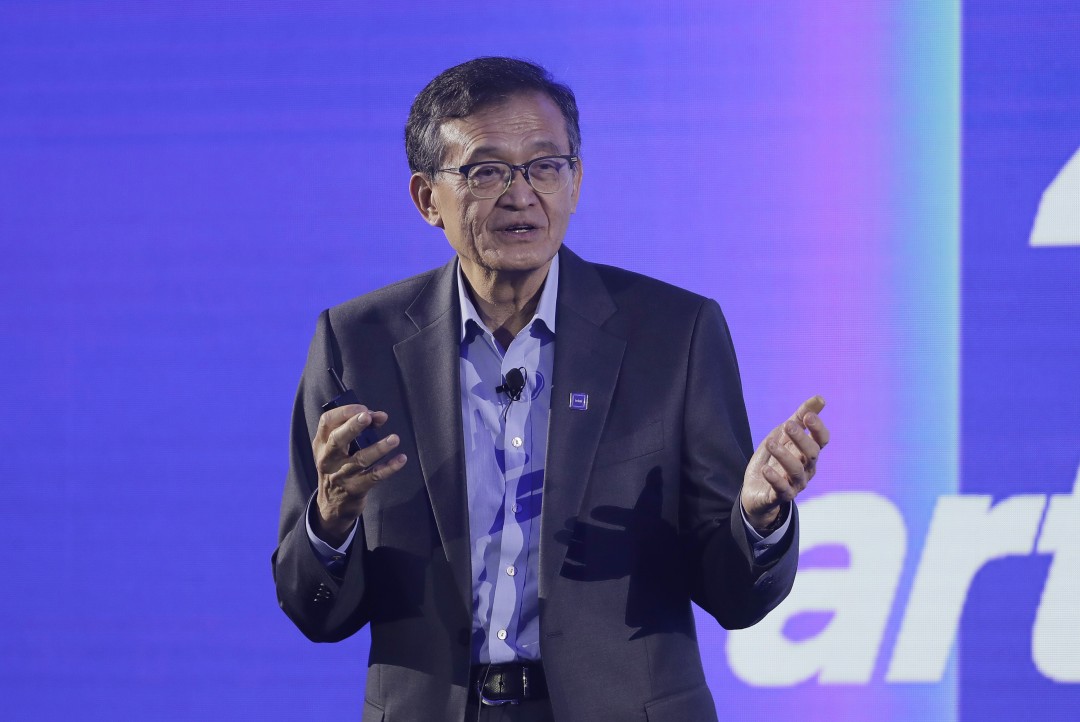Why is Intel's CEO Defying Trump's Demands?

Understanding the Controversy Surrounding Intel's CEO Lip-Bu Tan and His Ties to Chinese Tech
The tech industry is often caught in the crosshairs of political tension, especially when it involves significant players like Intel. Recently, Lip-Bu Tan, the newly appointed CEO of Intel, found himself at the center of controversy. Following President Trump's demand for Tan's resignation due to his past associations with Chinese technology firms, the situation has raised numerous questions about the intersection of politics, business, and international relations.
Who is Lip-Bu Tan?
Before delving into the recent political drama, it’s essential to understand who Lip-Bu Tan is. Tan has a long history in the tech sector, particularly in semiconductor technology. His career spans various leadership roles, including his tenure as CEO of Cadence Design Systems and his involvement with several venture capital firms that focus on technology investments.
Political Context: Trump's Demand for Resignation
President Trump’s insistence on Tan’s resignation stems from broader concerns about national security and the influence of China in the tech industry. His administration often criticized Chinese companies for alleged espionage and unfair business practices. The demand for Tan’s resignation raises important questions about the role of personal history in corporate leadership, particularly in industries that are sensitive to geopolitical tensions.
The Implications of Tan’s Leadership
Tan's appointment as CEO of Intel comes at a crucial time for the company, which is striving to regain its competitive edge in the semiconductor market. The ongoing rivalry with companies like AMD and Nvidia, as well as the increasing importance of AI and cloud technologies, means that effective leadership is more critical than ever. However, with political scrutiny focused on Tan, the question arises: how will this impact Intel's strategy and operations?
Intel’s Position in the Semiconductor Industry
Intel has long been a leader in the semiconductor industry, but in recent years, it has faced stiff competition. As companies like AMD have gained market share, Intel has been forced to innovate rapidly. Tan’s experience in semiconductor technology may provide the necessary expertise to navigate these challenges. However, the political pressure surrounding his leadership could complicate matters.
Understanding the Concerns Over Chinese Tech Ties
The U.S. government's stance towards Chinese technology firms has been influenced by national security concerns. The fear is that ties to Chinese companies could compromise intellectual property and sensitive information. For a leader like Tan, who has worked with Chinese tech firms, this scrutiny can create a perception of conflict of interest, potentially impacting investor confidence and public perception.
Analyzing the Broader Impact on the Tech Industry
The controversy surrounding Tan is symptomatic of a larger trend in the technology sector, where geopolitical factors increasingly influence business decisions. Companies are now more than ever under the microscope regarding their international relationships. This scrutiny can lead to various consequences, including:
- Investor Confidence: Political controversies may lead investors to question the stability of leadership, impacting stock prices.
- Regulatory Challenges: Increased scrutiny could result in more stringent regulations for companies with ties to foreign nations.
- Talent Acquisition: Companies may struggle to attract talent if potential employees fear for their job security amid political tensions.
The Future of U.S.-China Relations in Tech
As tensions between the U.S. and China continue, the future of tech companies with international ties remains uncertain. Companies may need to develop strategies that mitigate risks associated with geopolitical tensions while still pursuing global opportunities. Tan’s leadership at Intel could serve as a case study for how tech firms navigate these challenges moving forward.
The Role of Corporate Governance
In light of the controversies surrounding leadership, corporate governance becomes a significant factor. Companies need to establish clear policies regarding transparency and ethics, especially when dealing with international partners. This includes:
- Transparency in Operations: Companies should openly communicate their relationships and dealings with foreign entities.
- Establishing Ethical Guidelines: Clear ethical guidelines can help navigate complex international relationships while maintaining stakeholder trust.
- Regular Audits: Conducting regular audits can ensure compliance with regulations and reinforce investor confidence.
Public Perception and Media Coverage
The media plays a crucial role in shaping public perception of corporate leaders, especially during politically charged situations. Coverage of Tan’s ties to Chinese tech companies may influence how the public views Intel and its leadership. Effective communication strategies are essential for companies to manage their image during such controversies.
Conclusion: Navigating the Future
As Lip-Bu Tan navigates his role as CEO of Intel amidst political scrutiny, the tech industry will be watching closely. His ability to lead effectively while addressing the concerns raised by political figures will be critical in shaping the future of Intel and potentially the broader semiconductor market. The intersection of business and politics is complex, and Tan's situation underscores the importance of strategic leadership in navigating these challenges.
FAQs
What are the main concerns regarding Lip-Bu Tan's ties to Chinese tech companies?
The primary concerns revolve around national security and the potential for intellectual property theft, which has been a significant issue in U.S.-China relations.
How might Tan's leadership impact Intel's future?
Tan's experience in the semiconductor industry could help Intel regain its competitive edge, but political scrutiny may complicate his leadership and the company's strategy.
What steps can companies take to navigate geopolitical tensions?
Companies can focus on transparency, establish ethical guidelines, and conduct regular audits to maintain compliance and investor confidence.
As we witness the unfolding events around Lip-Bu Tan and Intel, one must consider: how will the tech industry adapt to an increasingly polarized political climate? #TechLeadership #Geopolitics #Intel
Published: 2025-08-09 01:00:00 | Category: Trump GNEWS Search



